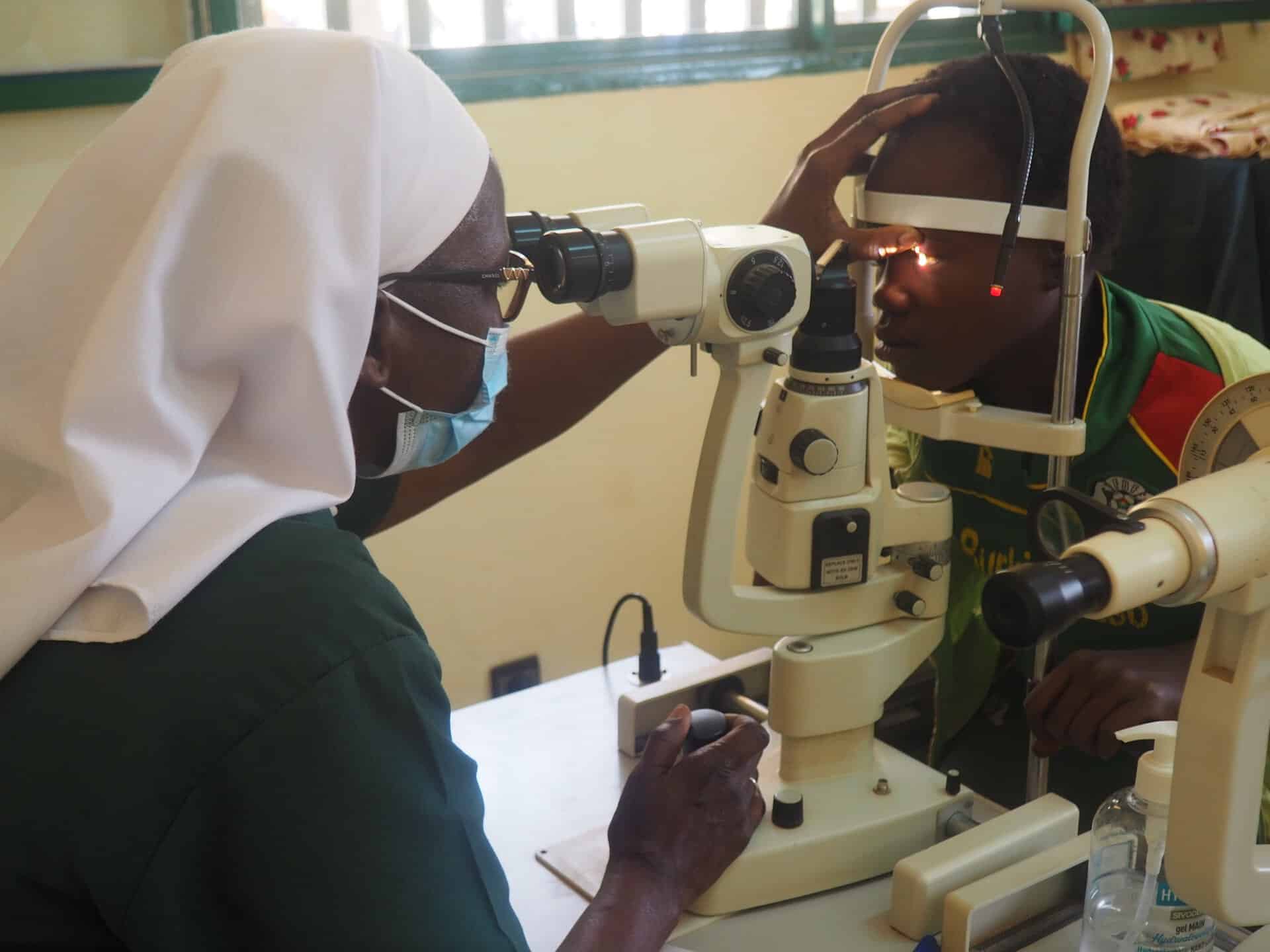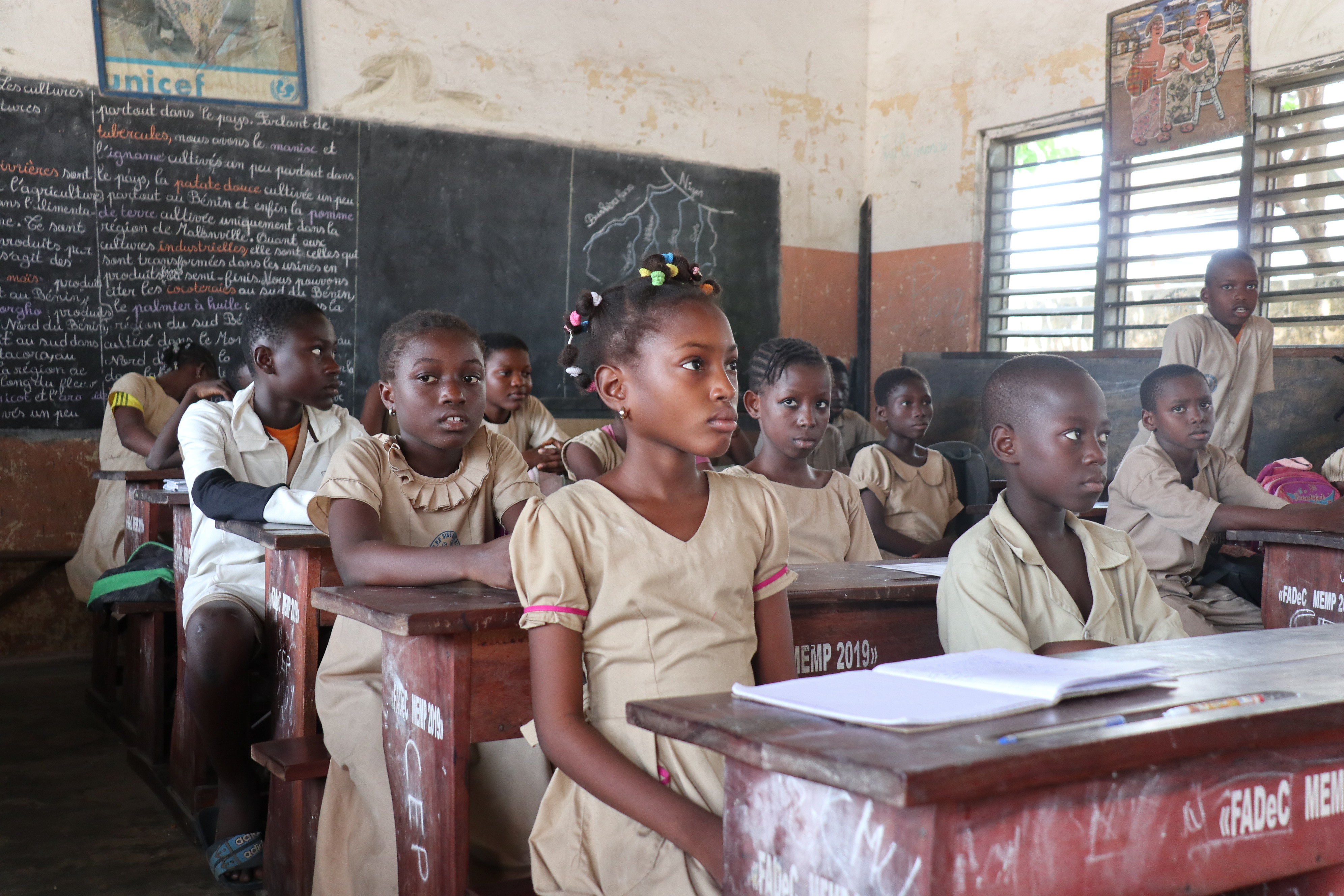On this new International Children's Rights Day, the grim reality is that, after more than 34 years of existence, children's rights are still a long way from being applied. Action Education is sounding the alarm and calling on France to make children's rights, and in particular the right to education for all, a priority of its international cooperation policy.
Children, the first victims of conflicts and crises
420 children die under the bombs in Gaza every day, more than 4.3 million Ukrainian children have been displaced in the space of just one month, and 10 million children in the Sahel are in need of emergency humanitarian aid. Because of their vulnerability and dependence on adults, children are the first victims of conflicts and security crises, which continue to multiply and grow in scale. Over the last 20 years, serious violations of children's rights have increased at an alarming rate. children's rightswhich have been listed and banned since 2005 by the UN Security Councilhave exploded, reaching
266,000 violations in more than 30 countries in conflict situationsThese include an increase in the murder of children, the number of minors enlisted in armed groups, the number of forced and early marriages...
Impact of multi-sector crises on children
But conflicts are not the only cause of this situation. Multi-sectoral, economic, political, ecological and health crises continue to multiply and intertwine. They spare no one, anywhere, especially children, especially the most vulnerable. They constantly expose them to greater insecurity and vulnerability. More than 333 million children are now living in poverty as a result of the rising cost of raw materials and energy (UNICEF 2023), 40 million children are now in a situation of severe nutritional insecurity and 21 million children are in a situation of severe food insecurity (UNICEF 2022).
Threat to the right to education
Against this backdrop of blatant violence and a decline in human rights, the right to education is under direct threat. Faced with rising living costs, health crises and conflicts, families have no choice but to take their children, particularly young girls, out of school. For the first time in decades, the number of out-of-school children worldwide has risen by more than 6 million (UNESCO 2023). Not to mention those who still go to school, but in conditions that are hardly conducive to adequate learning: hungry; with a job on the side to support the family; with no equipment, for lack of money to buy it, or with the fear in their stomach of being attacked. According to the latest estimates, 2 out of 5 children, or 392 million, who start school today will not be able to read a simple sentence by the age of 10 (Save The Children, 2023).
Supporting children's rights
These figures do not offer an optimistic vision of the world's future. What will become of these children, these young people, exposed to so much vulnerability, so many crises, so much violence, with no opportunity to learn? With no possibility of finding refuge and rebuilding their lives with childcare professionals who can take charge of them and help them bounce back. How can they know their rights, defend them, acquire a critical mind and envisage a different and better future? The answer is simple: without urgent and collective actionthey won't be able to.
State responsibility
All countries have signed the Convention on the Rights of the Child (CRC)The Convention on the Rights of the Child (CRC) was the first legally binding text to recognise the legal, economic, social and cultural rights of children under the age of 18. However, on the eve of its 35th anniversary, it has to be said that the CRC has still not been applied and will not be applied unless there is a real political will on the part of States, who are prepared to make a diplomatic and operational commitment today to ensure that children's rights are more effective. This is why, in addition to our actions on the ground, which aim to enable all children, girls and boys alike, to learn to read and write in a quality learning environment, Action Education lobbies governments, particularly France, to make children's rights, and in particular the right to education, a priority of its international cooperation policy. This year, Action Education contributed to the report submitted by civil society to the Committee on the Rights of the Child on the situation of children's rights in France and its foreign policy. Following this report and France's hearing, the Committee on the Rights of the Childlast June, encouraged France to operationalise its commitments, to increase its official development assistance to 0.7% and to assess the impact of its international cooperation policy on the specific issue of children's rights. Action Education and the groups with which we will be working in the coming months to ensure that the final recommendations of the Committee on the Rights of the Child do not go unheeded!
Related links :






